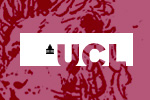Legislation
1873: language use in criminal proceedings: use of Dutch officially recognized
1878: language use in public administration: use of Dutch or both languages in communications of civil servants with lower authorities and the public
1883: language use in state-run secondary education: a greater role given to Dutch as a subject and as a language of instruction
1898: language use in legislation and government decrees (Equality Law)
1910: language use in secondary education
1913: language use in the army
1914: Primary Education Act, art.15: language of instruction = mother-tongue or customary language of the child
1921: language use in public administration: monolingualism introduced (with a series of exceptions) 1928: language use in the army: monolingual companies & bilingual army command
>>1930: Dutch-language State University of Gent opens its doors
1932: language use in public administration: monolingualism fully applied
1932: language use in primary and secondary education: id. 1935: language use in the law courts: id. 1938: language use in the army: monolingual regiments & greater bilingualism in the army command
1962: Dutch-French language boundary fixed in law
>>1963: language use in education, public administration and justice: monolingual status further strengthened
1967: official Dutch translation of the Belgian constitution
1968: Catholic University of Leuven becomes exclusively Dutch-speaking; francophone Catholic University transferred to Wallonia
>>1970: first constitutional reform – establishment of Flemish and French-speaking community institutions
1980: second constitutional reform – establishment of three regions (Flanders, Wallonia and Brussels)
1988: third constitutional reform – further transfer of powers to the regions 1992/93: fourth constitutional reform – Belgium becomes a federal state |
History of the Flemish Movement
1830-1840: emergence of the Flemish Movement
1840: first petition
1856: ´Grievances Commissions´
1890-1910: the ideas of Julius MacLeod, August Vermeylen, Lodewijk de Raet and Frans van Cauwelaert radicalize the Flemish Movement´s ideology and programme
1914-1918: Word War I – ´activists´ collaborate with the German occupying regime; Front Movement organizes itself in the Belgian army
1918- 1933: majority supports van Cauwelaert´s “Minimum Programme” (i.e. a monolingual status for Flanders); minority advocates self-government
1933-1940: growing success of the Flemish National Union (VNV), an extreme-right, authoritarian Flemish-nationalistist party1940-1944: World War II – VNV and other Flemish-nationalist groups collaborate with the German occupying regime1961: breakthrough of the People´s Union (Volksunie), a new, pluralistic Flemish-nationalist party
1968-78: break-up of the national political parties into Dutch-language and francophone parties
1978: birth of the Flemish Bloc (Vlaams Blok), a new, extreme-right anti-Belgian party |



